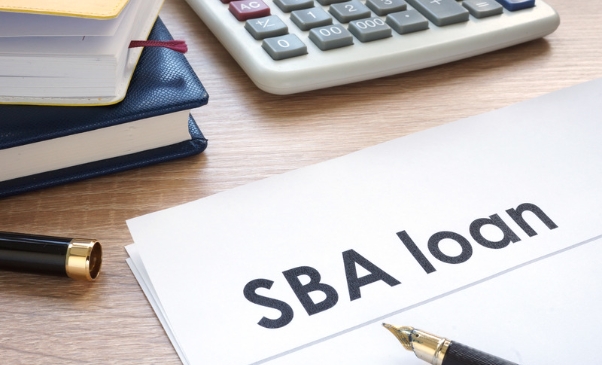Home Finance
Small Businesses and SBA Loans: A Guide to Making the Right Choice for Your Company
If you need money to help your small business grow, you might want to look into the loans offered by the Small Business Administration. These loans aim to make sure that small businesses can get the money they need to grow. The Small Business Administration (SBA) offers a wide range of loan programmes with reasonable interest rates and flexible ways to pay them back.
Loans from the Small Business Administration (SBA) can be used for many things, like buying new equipment, growing an existing business, or hiring more workers. Since the SBA is a government organization, you can be sure that the process will be simple and easy to understand. If you want to apply for a Small Business Administration loan or learn more about these loans, please visit our website.

What Is an SBA Loan?
The term "SBA" stands for loans from the Small Business Administration. The Small Business Administration (SBA) is a government agency that helps entrepreneurs and people who own small businesses. There are many different kinds of loans, such as starting a business, getting working capital, and buying real estate.
Even though the benefits of SBA loans are most clear for businesses with less than 500 employees, any business can apply for funding through the Small Business Administration. These loans' terms and conditions are much better than those of traditional bank loans. The Small Business Administration can help you get a loan if you need money to start a new business or grow one you already have (SBA).
Eligibility Criteria for an SBA Loan
Before applying for a loan from the Small Business Administration, you should find out if you qualify. You have to have a place of business in the United States to do business. Any business that has been open for more than two years and is making money is eligible to apply. The third requirement is that your business's credit score be at least 680 out of 850. The security for the loan, which is the last need, comes in at number four. If you can meet all of these requirements, you are ready to fill out an SBA loan application.
How to Apply for an SBA Loan?
To get a loan from the SBA, all you have to do is fill out the paperwork. You can expect that the SBA office near you will have loan application forms for you to fill out. Just do this one thing, and everything will be fine. Before we can consider your application, you must send it to us after filling it out completely. There is a chance that the loan will be approved, but it is also possible that they will need more information. The creditworthiness of your company and the soundness of the business plan you have made will be important factors.
Reasons Small Businesses Should Consider an SBA Loan
The Small Business Administration can help you get a loan if you need money over a longer period. When you get a loan from a regular bank, the terms for paying it back are often shorter than what the Small Business Administration offers. This could make it hard for borrowers to keep a steady cash flow, leading to money problems. Also, because the government backs SBA loans, the interest rates may be lower than what a customer would get from a traditional bank.
An SBA loan is a good choice for small business owners who do not want to deal with the hassle of standard financing rules. Small Business Administration (SBA) loans can sometimes help fill the gap between an organization's immediate financial needs and its longer-term financial goals. There is no guarantee, though, that this will happen. Small Business Administration Loans (SBA Loans) have fewer restrictions and lower interest rates than traditional loans.
Repayment and Fees for an SBA Loan
To successfully pay back an SBA loan and the fees that come with it, you must fully understand the loan's terms and your responsibilities. You have to pay back the loan according to the terms written in the contract you signed when you got the loan. There is a chance that the Small Business Administration-insured loans will have extra costs, like those for the loan's origination, appraisal, environmental review, and closing (SBA). Before you agree to pay back a loan, you should fully understand how much it will cost.

Common Pitfalls of Taking Out an SBA Loan
Before applying for an SBA loan, you should know the usual risks. You might have to pay back the money on your own if you do not pay back the loan or if your business goes out of business. Also, the Small Business Administration (SBA) will not even look at a loan application unless the person applying meets all of the SBA's eligibility requirements. Your loan request could be turned down if you do not meet these requirements.
Another thing to think about is that loans from the Small Business Administration (SBA) often have high-interest rates and require a big down payment. The time you have to pay back the loan can sometimes be pretty long, which can add a lot to the total cost. Because of this, it is very important to get ready ahead of time and be patient.
Resources for More Information on SBA Loans
If you are worried about applying for a loan from the Small Business Administration, you might feel better using one of the many available resources. The US, Small Business Administration website is a great place to start your search because it has much information. It details the different kinds of SBA loans, how to apply for one, and the terms that apply to them. In the article, this subject is talked about. Connecting with other business owners who have applied for and been approved for SBA loans is also important. Talking to a local bank or credit union about the Small Business Administration loan programme they offer could help you find out more about it.
Conclusion
There is a chance that SBA financing could help small businesses a lot. Since the federal government backs the loans, they may offer benefits that other ways of getting money cannot. SBA loans can help small businesses in a wide range of ways. These include buying new equipment, entering new consumer markets, and hiring more people. Getting a loan from the Small Business Administration (SBA) might be hard, depending on your business circumstances.



